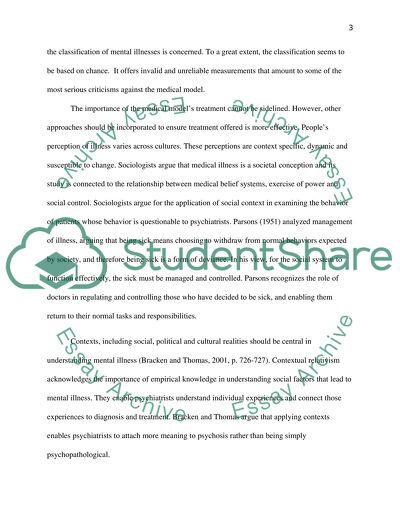Cite this document
(“Critically Assess the Medical Model as Applied to the Diagnosis and Essay”, n.d.)
Retrieved from https://studentshare.org/psychology/1450504-critically-assess-the-medical-model-as-applied-to
Retrieved from https://studentshare.org/psychology/1450504-critically-assess-the-medical-model-as-applied-to
(Critically Assess the Medical Model As Applied to the Diagnosis and Essay)
https://studentshare.org/psychology/1450504-critically-assess-the-medical-model-as-applied-to.
https://studentshare.org/psychology/1450504-critically-assess-the-medical-model-as-applied-to.
“Critically Assess the Medical Model As Applied to the Diagnosis and Essay”, n.d. https://studentshare.org/psychology/1450504-critically-assess-the-medical-model-as-applied-to.


